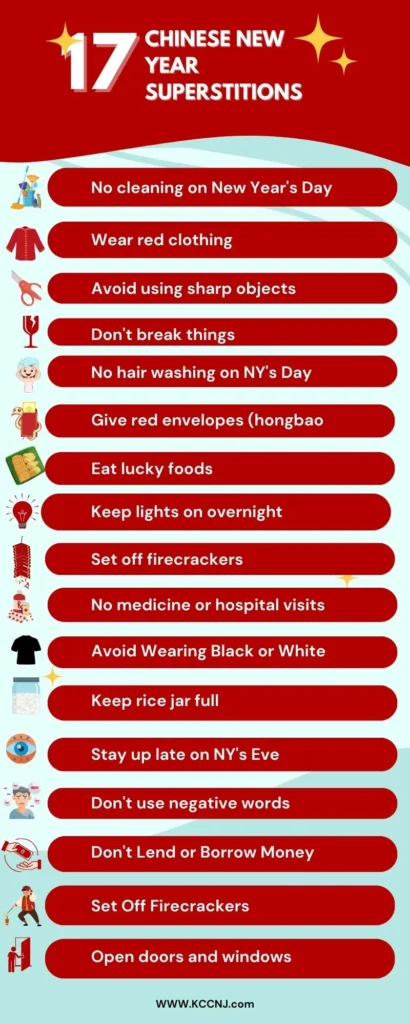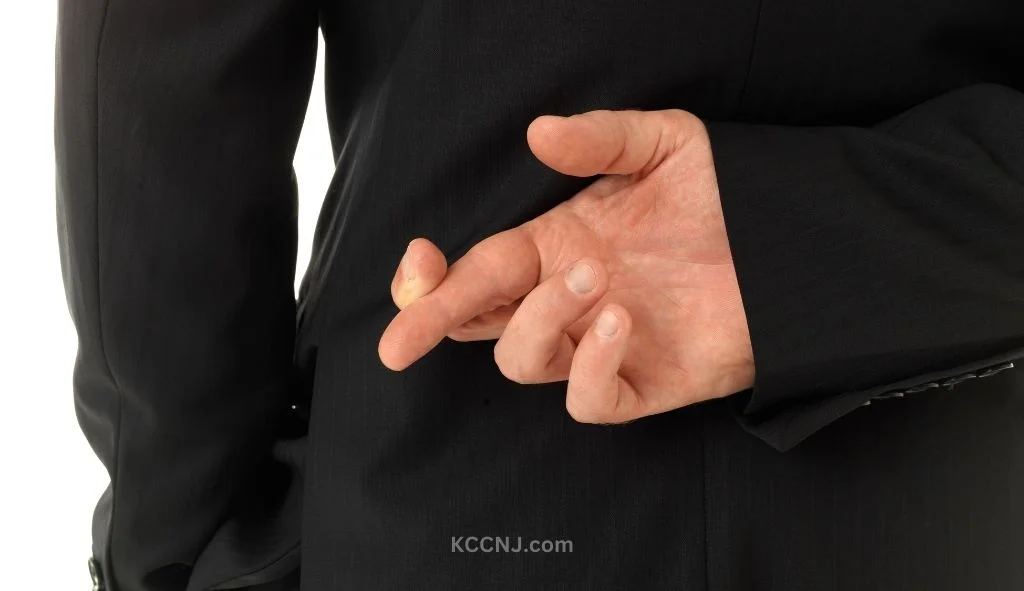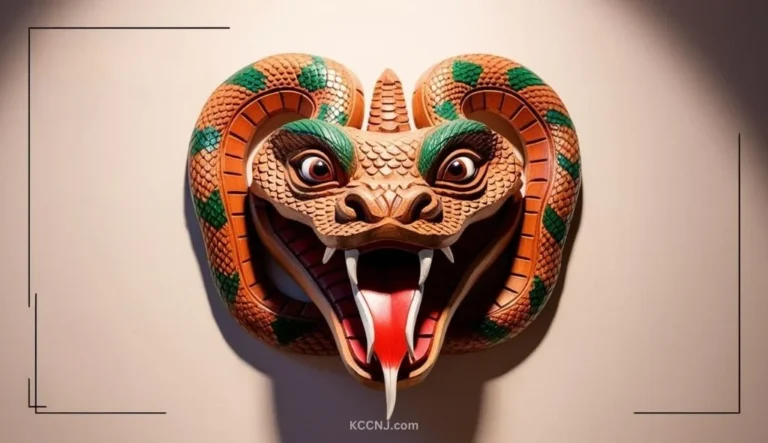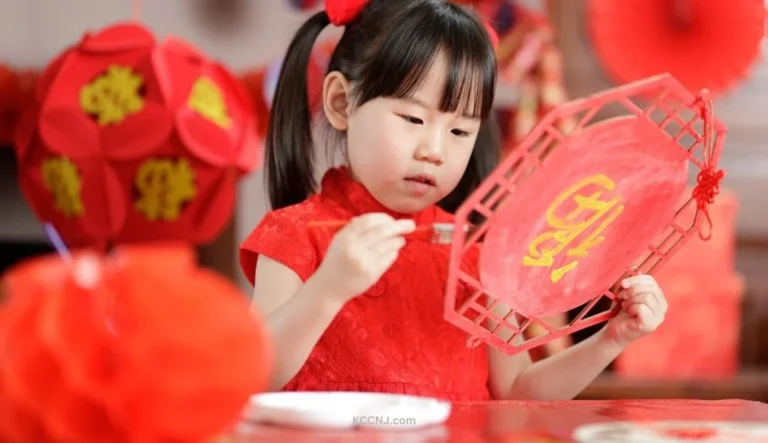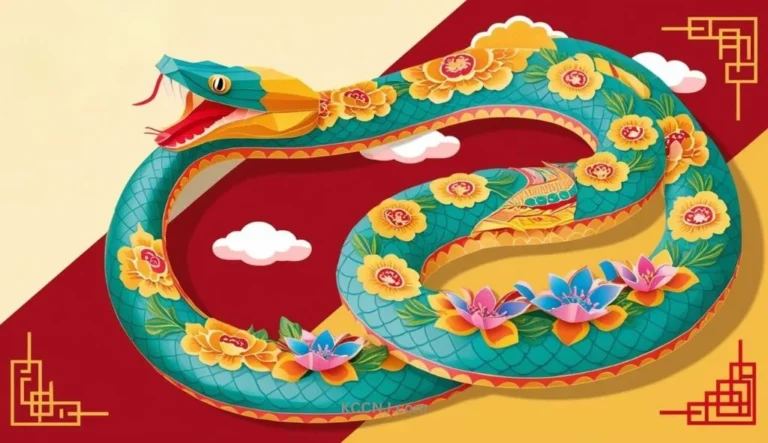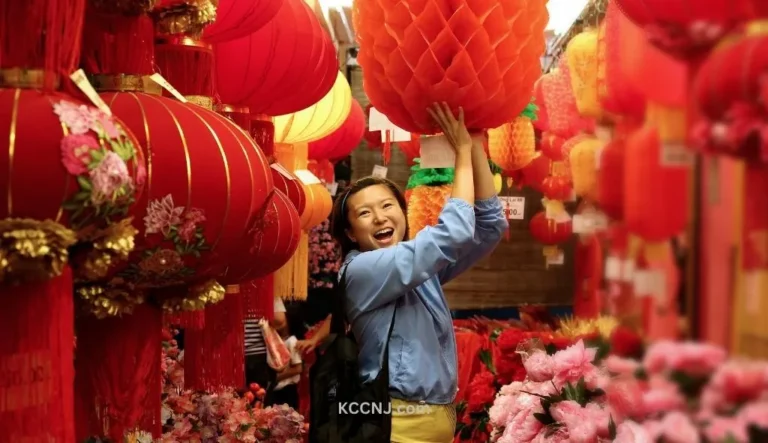Top 20 Chinese New Year Superstitions: Luck & Tradition
Chinese New Year superstitions are traditional beliefs and practices observed during the Lunar New Year to bring good luck and ward off misfortune. These customs range from avoiding certain actions to performing specific rituals, all aimed at ensuring a prosperous year ahead.
20 Chinese New Year Superstitions
1. Avoid Cleaning on New Year’s Day

One of the most widely observed superstitions is refraining from cleaning on the first day of the Chinese New Year. It is believed that sweeping or taking out the garbage on this day can sweep away good luck for the coming year. Instead, people thoroughly clean their homes before the New Year to remove any bad luck from the previous year.
2. Wear Red for Good Luck
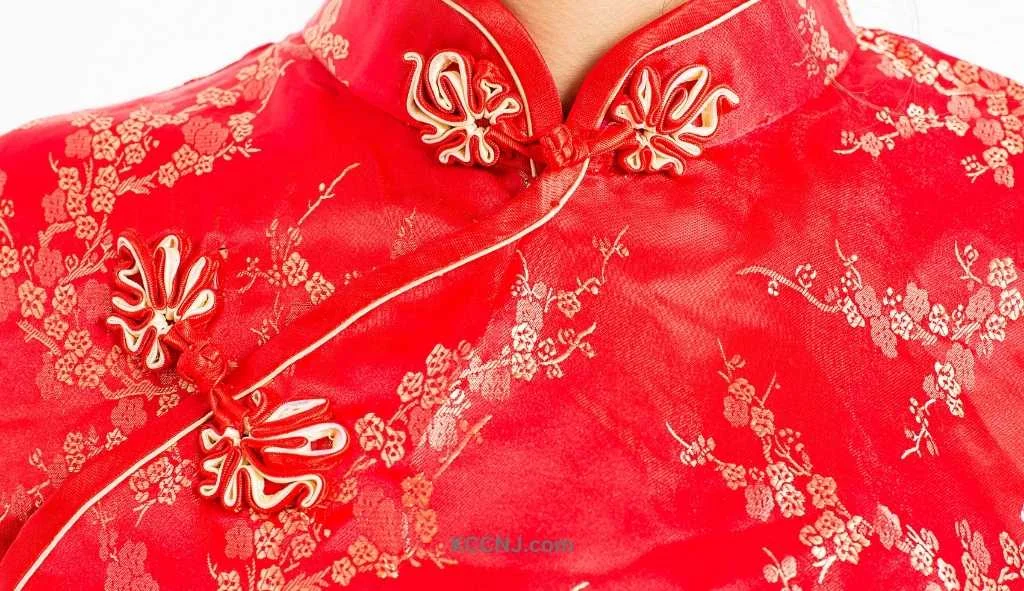
Red is considered an auspicious color in Chinese culture, symbolizing good fortune and joy. During the New Year, people often wear red clothing, including underwear, to attract luck and ward off evil spirits.
3. Don’t Use Sharp Objects

Using scissors, knives, or other sharp objects during the New Year is thought to “cut off” good fortune. Many people avoid cutting their hair or using needles for sewing during this time.
4. Avoid Breaking Things

Breaking objects, especially plates or glasses, is considered extremely unlucky during the New Year. It is believed to symbolize the breaking of family bonds or the loss of wealth.
5. Don’t Wash Hair on New Year’s Day

Washing hair on the first day of the New Year is thought to wash away good luck. The Chinese word for hair (发) sounds similar to the word for prosperity (发财), so washing hair is seen as washing away wealth.
6. Give Red Envelopes
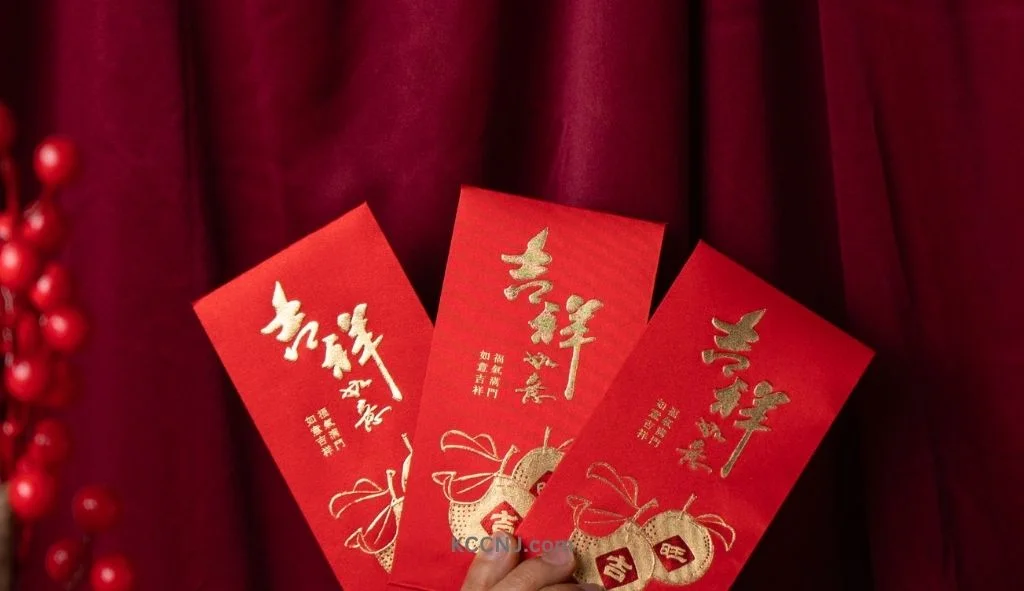
Giving red envelopes filled with money (hongbao) is a common practice during Chinese New Year. It is believed to bring good luck to both the giver and the receiver. However, the amount of money should be an even number, as odd numbers are associated with funerals.
7. Eat Lucky Foods
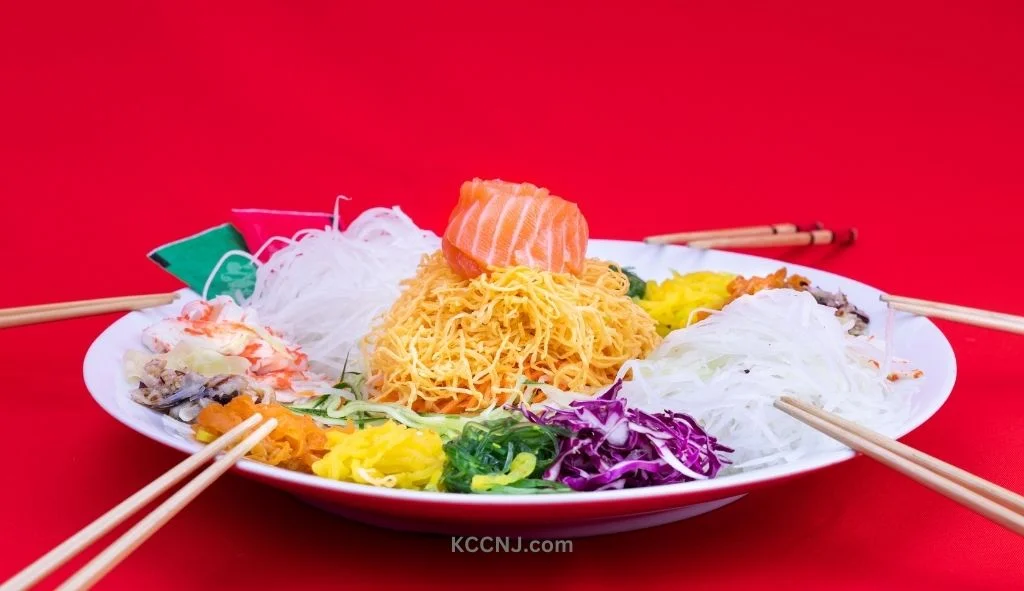
Certain foods are eaten during the New Year for their symbolic meanings. For example, fish is eaten for abundance, dumplings for wealth, and long noodles for longevity.
8. Don’t Lend or Borrow Money
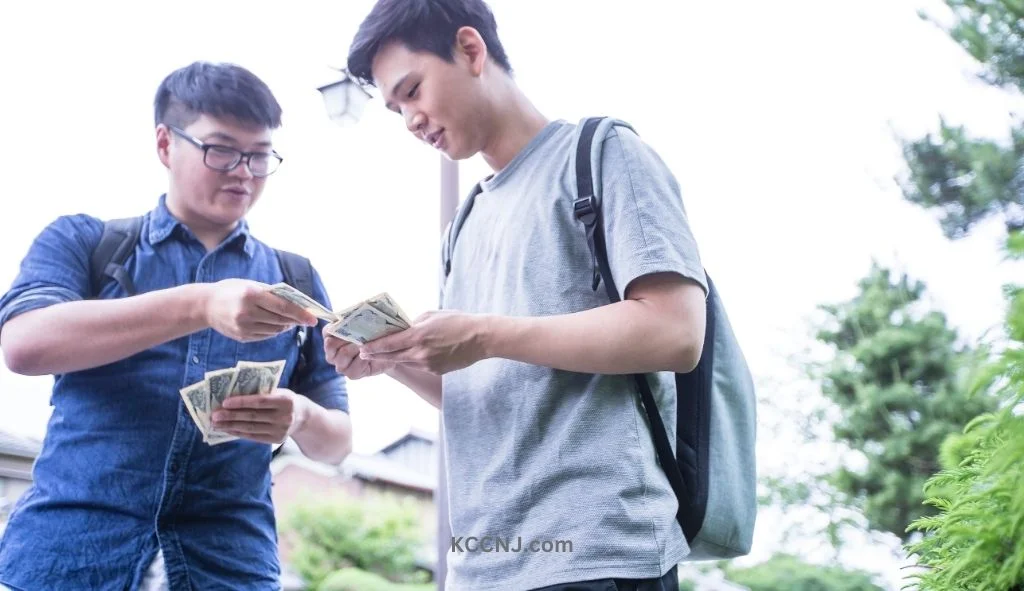
Lending or borrowing money during the New Year is believed to lead to financial difficulties in the coming year. It’s also considered unlucky to pay back debts during this time.
9. Keep the Lights On

Keeping the lights on in the house on New Year’s Eve is thought to ward off bad luck and evil spirits. It also symbolizes a bright future for the family.
10. Avoid Negative Words
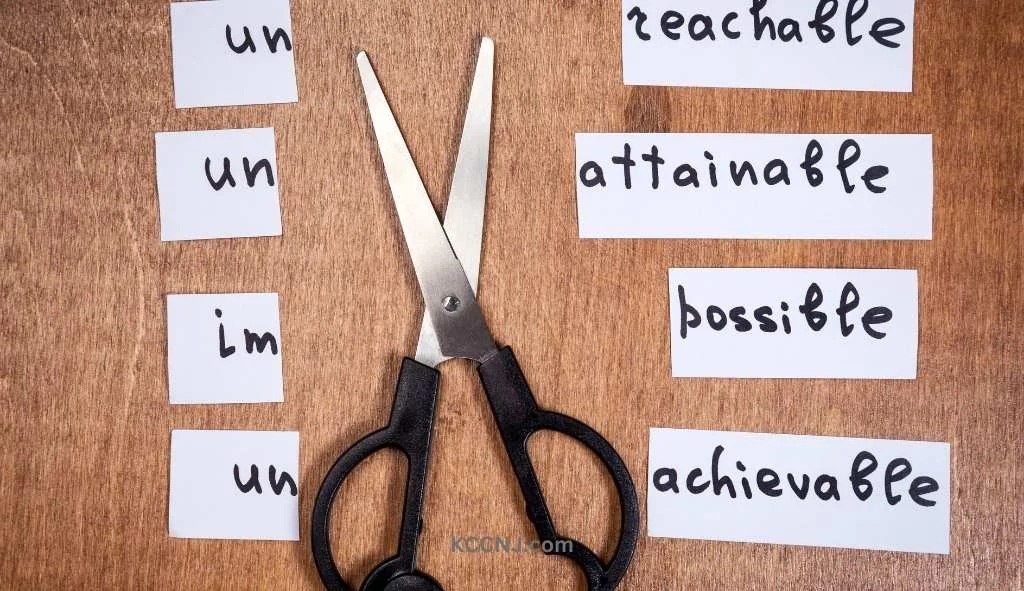
Using negative words or talking about death, ghosts, or other unlucky topics is strictly avoided during the New Year celebrations. It’s believed that speaking of such things can invite misfortune.
11. Don’t Take Medicine

Taking medicine on the first day of the New Year is thought to bring illness for the entire year. If possible, people try to avoid being sick during this time.
12. Set Off Firecrackers
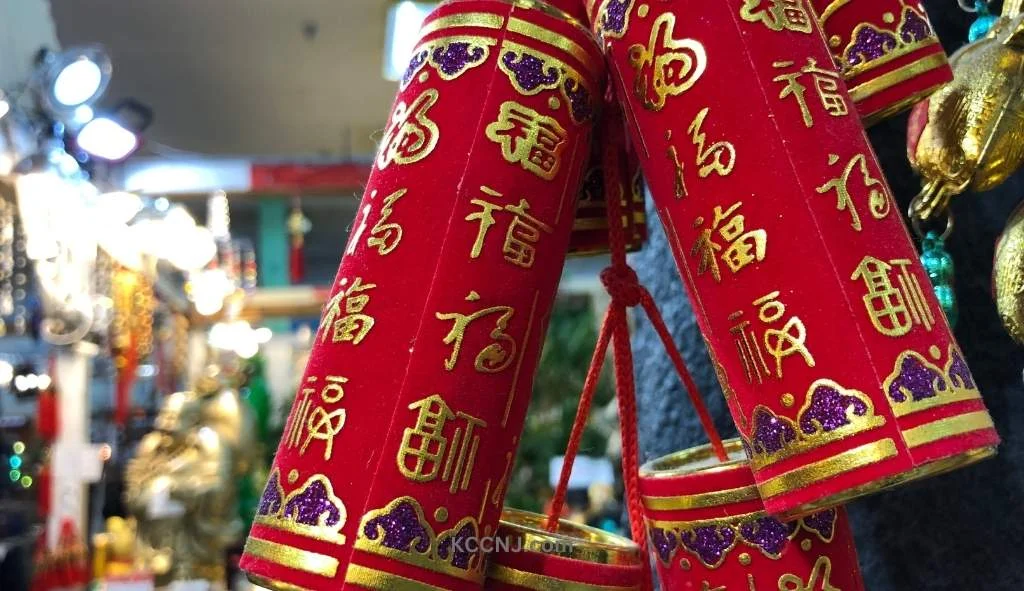
Setting off firecrackers and fireworks is a traditional way to scare away evil spirits and bad luck. The loud noises are believed to drive away the mythical beast Nian.
13. Don’t Cry

Crying during the New Year, especially for children, is considered a bad omen. Parents often try to keep their children happy and avoid scolding them during this time.
14. Open All Doors and Windows

At midnight on New Year’s Eve, it’s customary to open all doors and windows to let the old year out and welcome the new year in.
15. Avoid Wearing Black or White
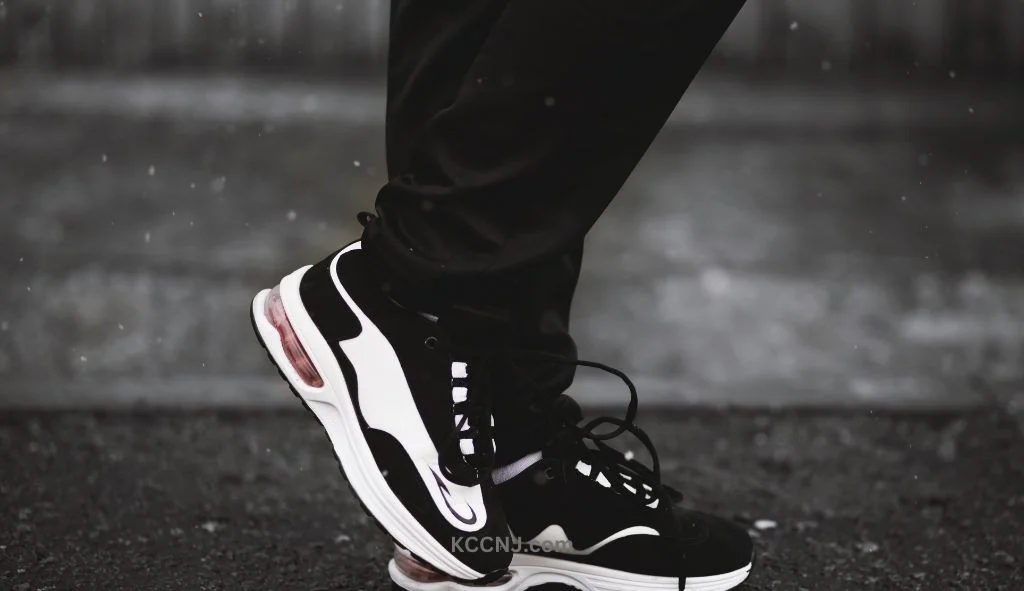
Black and white are colors associated with mourning in Chinese culture. Wearing these colors during the New Year is considered unlucky and disrespectful.
16. Don’t Give Certain Gifts
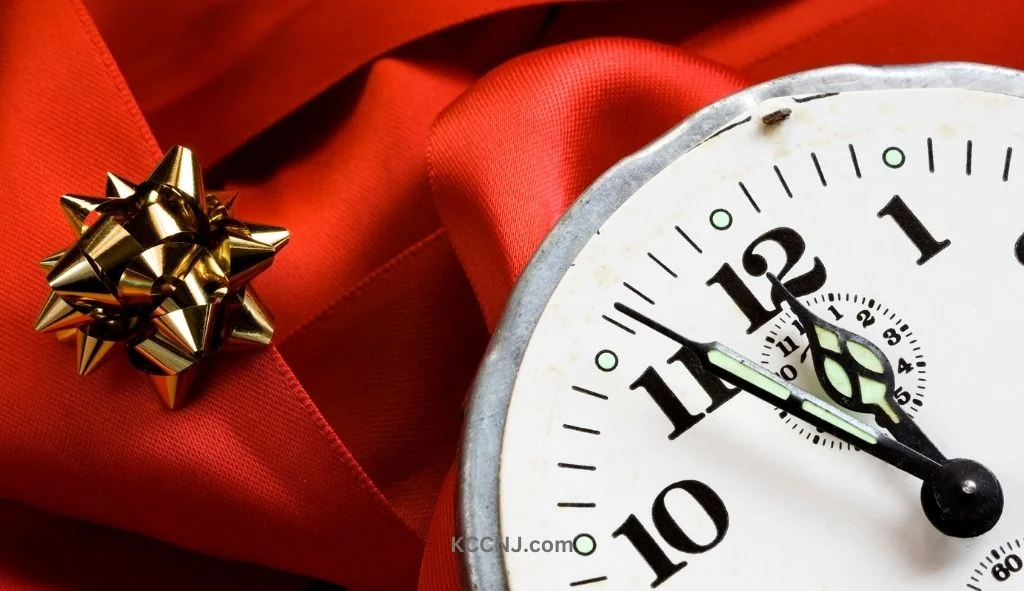
Some gifts are considered taboo during Chinese New Year. These include clocks (which sound like “the end” in Chinese), sharp objects, and items associated with the number four (which sounds like “death”).
17. Fill Rice Jars
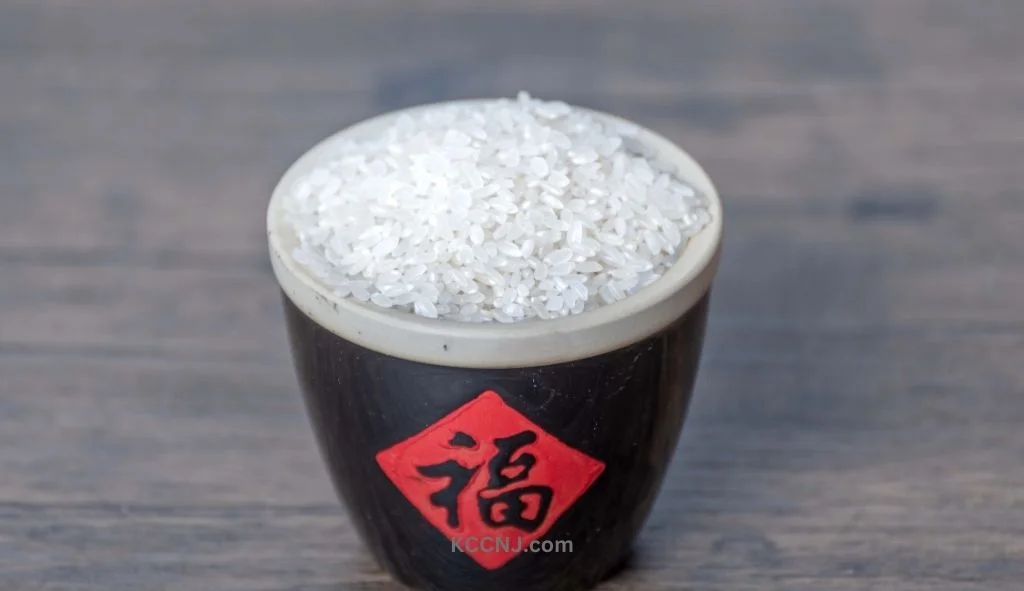
Ensuring that rice jars are full before the New Year is believed to bring abundance and prevent hunger in the coming year.
18. Don’t Visit the Hospital

Visiting a hospital during the New Year is thought to bring illness. If possible, people try to avoid medical appointments during this time.
19. Stay Awake Late on New Year’s Eve

Staying up late on New Year’s Eve, known as “shousui,” is believed to extend the life of one’s parents. Many families gather to watch the New Year’s Gala on television together.
20. Avoid Slaughtering animals

Killing any living creature during the New Year period is considered extremely unlucky. Many people prepare meat dishes in advance to avoid having to slaughter animals during this time.
Understanding Chinese New Year Superstitions
Chinese New Year, also known as the Spring Festival, is the most important holiday in Chinese culture. It marks the beginning of the lunar calendar and is a time for family reunions, feasting, and observing various traditions. Superstitions play a significant role in these celebrations, as many believe that actions taken during this period can influence their fortune for the entire year.
The Origins of Chinese New Year Superstitions
Many Chinese New Year superstitions have their roots in ancient folklore and legends. One of the most famous stories involves a mythical beast called Nian, which would terrorize villages on New Year’s Eve. People discovered that Nian was afraid of loud noises, fire, and the color red. This led to the tradition of setting off firecrackers, lighting lanterns, and decorating with red during the New Year celebrations.
The Significance of Chinese New Year Superstitions
While many of these superstitions may seem outdated or irrational to some, they continue to play an important role in Chinese culture. They serve as a way to connect with tradition, bring families together, and express hopes for the future.
Cultural Preservation
These superstitions help preserve Chinese cultural heritage, passing down beliefs and practices from generation to generation. They provide a sense of continuity and identity in a rapidly changing world.
Psychological Comfort
For many people, observing these superstitions provides a sense of control over their fate and a feeling of optimism for the coming year. Even if they don’t fully believe in the superstitions, following them can be comforting and enjoyable.
Community Bonding
Many of these superstitions involve communal activities, such as family dinners, visiting relatives, and public celebrations. This helps strengthen social bonds and create a sense of shared experience.
FAQs
- Are Chinese New Year superstitions still widely practiced today?
Yes, many Chinese New Year superstitions are still widely observed, especially among older generations and in more traditional communities. However, adherence to these practices varies among individuals and regions. - What happens if you accidentally break a Chinese New Year superstition?
While some people take these superstitions very seriously, many others are more relaxed. If you accidentally break a superstition, don’t worry too much. Some people might say a short phrase to counteract the bad luck or simply brush it off. - Do all Chinese people believe in these superstitions?
No, not all Chinese people believe in these superstitions. Beliefs and practices can vary widely depending on factors such as age, education, region, and personal beliefs. - Are there any health risks associated with following Chinese New Year superstitions?
Most superstitions are harmless cultural practices. However, avoiding necessary medical treatment due to superstitions could potentially be harmful. It’s important to prioritize health and safety over superstitious beliefs. - Can non-Chinese people participate in these superstitions?
Absolutely! Many non-Chinese people living in areas with large Chinese populations or those interested in Chinese culture often participate in these traditions. It’s a great way to learn about and appreciate Chinese culture.
Chinese New Year Classroom Board
